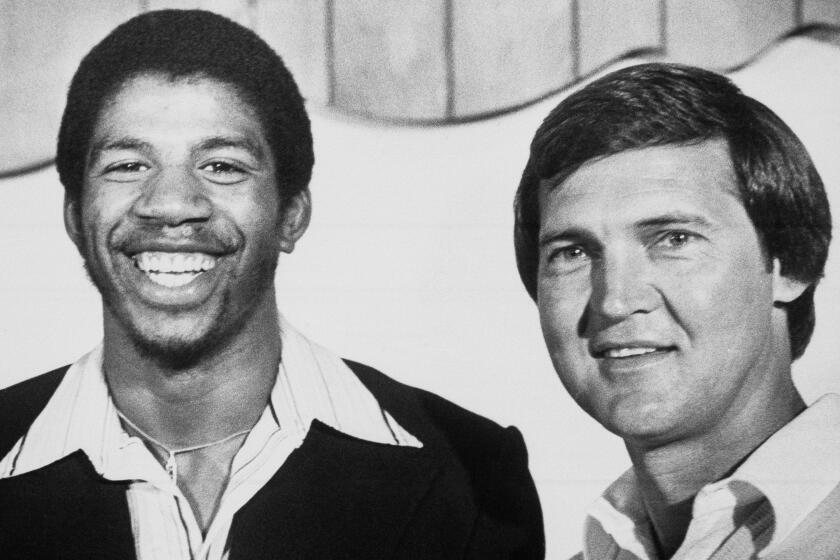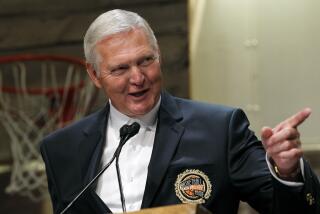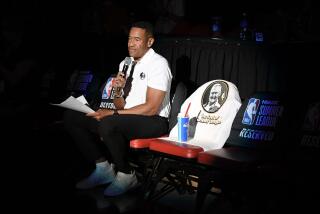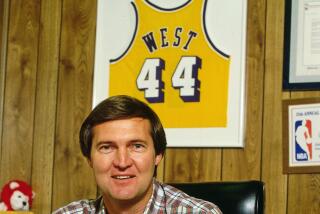NBA stars mourn the death of Jerry West, ‘one of the very best players’
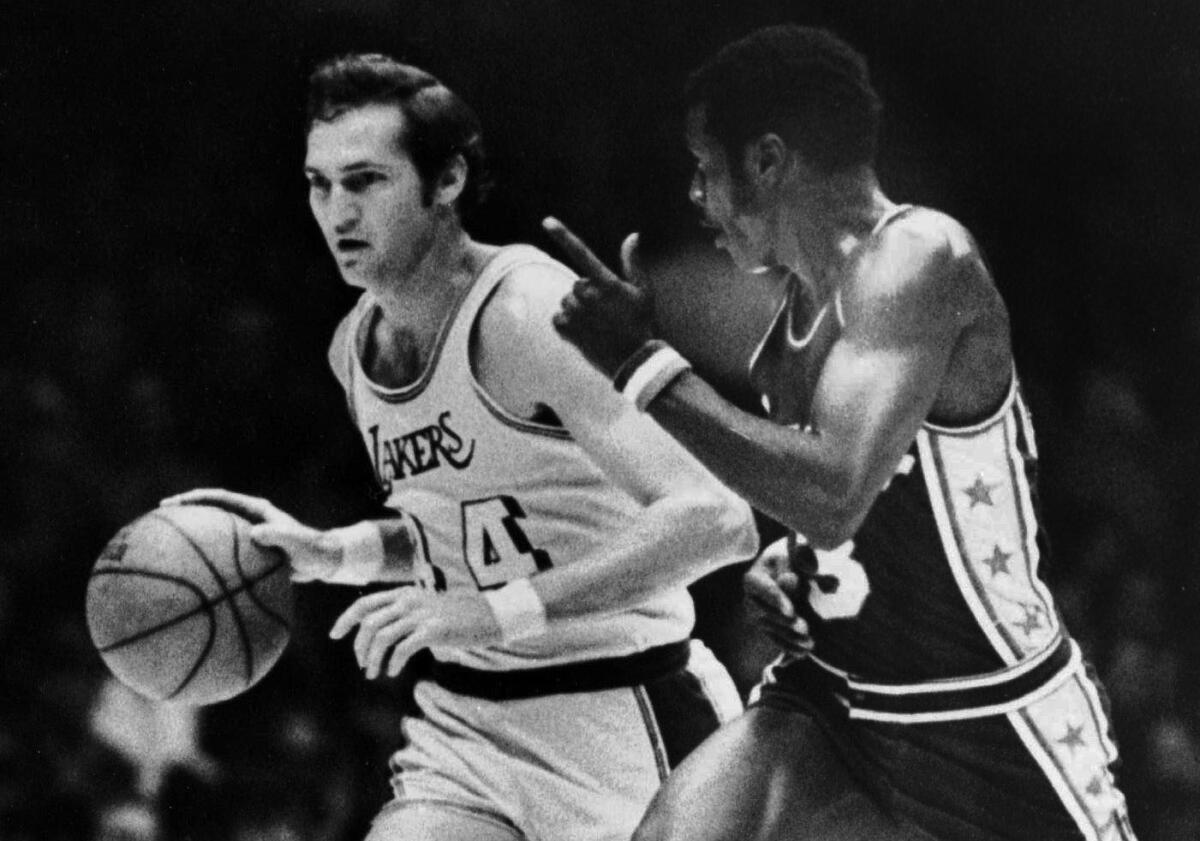
They called him “Mr. Clutch,” “Zeke from Cabin Creek,” “Tweety Bird” and eventually “The Logo.” Yet to the people who knew him, Jerry West was, at first, someone you’d call overwhelming and humbling.
“Well, it was intimidating,” Golden State coach Steve Kerr told The Times. “It’s hard to make these lists, but, when you think about the very most important figures in NBA history, he’s on the short list.”
Kerr, a broadcaster at the time, went to watch the Memphis Grizzles practice when West, the team’s general manager, spoke with him about anything and everything — a man allergic to anything but unvarnished truth.
“Jerry, as you know, was, uh, he was like perpetually unplugged. He didn’t spare any thoughts on anybody,” Kerr said.
After West’s death at the age of 86 on Wednesday, the basketball world reciprocated. Some fans visited his statue outside the Lakers arena, one bouquet of flowers sitting at the base under a list of his basketball accomplishments.
LeBron James posted shortly after the Clippers announced West’s death.
“My mentor, My friend!” he wrote on X. “Hopefully I continue to make you proud! You’re already missed!”
Michael Jordan, Magic Johnson, Pau Gasol and Klay Thompson were among those who also posted their thoughts about West’s death.
“I am so deeply saddened at the news of Jerry’s passing. He was truly a friend and mentor — like an older brother to me. I valued his friendship and knowledge,” Jordan said in a statement. “I always wished I could have played against him as a competitor, but the more I came to know him, I wish I had been his teammate.”
NBA Hall of Fame contributor Rod Thorn, a prep star in West Virginia just younger than West, knew him as a friend, teammate and competitor.
As Thorn entered West Virginia as a freshman, West was starring on the varsity team, the two players matching up in early-season practices.
“You know, I thought I was pretty good, but compared to him, he was just so good. I mean, he could do virtually anything on the court,” Thorn told The Times. “With him, he was just so good that it was frustrating for me until I, you know, said: ‘I’ve got to learn here. How are you going to be in a position to learn as much as I can playing against this guy.’ You can’t take it personally that he’s smoking you every day.”
His long arms, his athleticism and his unextinguishable competitive fire made West one of the NBA’s best players, a 14-time All-Star, a 12-time All-NBA selection and a four-time runner-up for most valuable player. Still, incredibly, his reputation post retirement as an executive and contributor might even loom larger.
“He’s clearly one of the most important people in NBA history. He’s obviously one of the very best players. And he’d probably win any poll of the greatest executive of all time,” Kerr said. “You know maybe someone would vote for Red Auerbach, but I think most people would vote for Jerry West.”
Thorn, a legendary executive in his own right who drafted Jordan in Chicago, said West is one of the few people in the league to be so dominant on the court and so adept in the front office.
“He had a tremendous feel. He understood he could watch players and understand, you know, who could play and who couldn’t play,” Thorn said. “He just had a great feel for it, and he understood how to put a team together. He just innately knew that.”
Magic Johnson recalls his first meeting with Lakers legend Jerry West, who died Wednesday morning, plus their relationship as player and mentor.
He helped build the Showtime Lakers of the 1980s while leading the organization’s reinvention at the turn of the century on the backs of Shaquille O’Neal and his greatest scouting victory, a high schooler named Kobe Bryant.
West would go on to win in Memphis and as a consultant with the Golden State Warriors before finishing his career as a valued part of the Clippers’ brain trust.
One of Kerr’s first actions as coach of the Warriors was to call West to get his thoughts.
“He was very opinionated about our roster and about our players and told me what he thought guys needed to improve on,” Kerr said. “He was incredibly helpful because you just knew you were getting his opinion. It was the unvarnished truth, and you know, it didn’t mean he was right. ’Cause nobody’s always right in this business.
“But he just had great insights on the team and on the value of guys. And we really hit it off. … He always told me the truth. That’s for sure.”
Despite his status in the league, despite the fact the NBA logo was modeled after him, and despite the way he grew into embodying that image by succeeding in so many different areas of basketball, West never made people feel like they were in the presence of someone accomplished.
Because there was always more to do.
“No matter how good he played or what he did, he was always looking for how to do the next thing,” Thorn said. “He wasn’t one to rest on his laurels, if you will. He was, you know, ‘That’s over now. I gotta go on to something else.’”
More to Read
All things Lakers, all the time.
Get all the Lakers news you need in Dan Woike's weekly newsletter.
You may occasionally receive promotional content from the Los Angeles Times.

